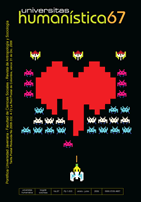Abstract
The Darker Side of the Renaissance focuses on coloniality rather than on Europe’s witch and alchemist hunt. Today I would dare to say also that this expression refers us to the historical foundation of coloniality. At the same time, coloniality statement is called into question, as well as the distinction between the known object and the knowing subject, an assumption on which the Eurocentric project of “modernity” and “modernization” disciplines lie. The preface marks the enunciation with which the statement is stated. That is, it rejects the "point zero epistemology" denounced by Santiago Castro-Gómez. This means the reader should be always pay attention to the ennunciation s/he states him/herself, to the hand drawing the hand. Those of us dwelling at Abya-Yala/America are surrounded by the historical foundation of modernity/coloniality, we are a living part of that process, which only “scientific” alignment can make us believe we are looking at something (e.g., colonization) touching what we are today

This journal provides immediate open access to its content on the principle that making research freely available to the public, encourages greater global exchange of knowledge.
The journal Universitas Humanística is registered under a Creative Commons Attribution 4.0 International Public License. Thus, this work may be reproduced, distributed, and publicly shared in digital format, as long as the names of the authors and Pontificia Universidad Javeriana are acknowledged. Others are allowed to quote, adapt, transform, auto-archive, republish, and create based on this material, for any purpose (even commercial ones), provided the authorship is duly acknowledged, a link to the original work is provided, and it is specified if changes have been made. Pontificia Universidad Javeriana does not hold the rights of published works and the authors are solely responsible for the contents of their works; they keep the moral, intellectual, privacy, and publicity rights.
Approving the intervention of the work (review, copy-editing, translation, layout) and the following outreach, are granted through an use license and not through an assignment of rights. This means the journal and Pontificia Universidad Javeriana cannot be held responsible for any ethical malpractice by the authors. As a consequence of the protection granted by the use license, the journal is not required to publish recantations or modify information already published, unless the errata stems from the editorial management process. Publishing contents in this journal does not generate royalties for contributors.


